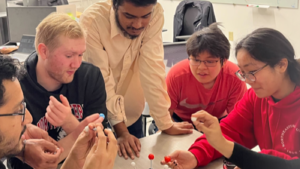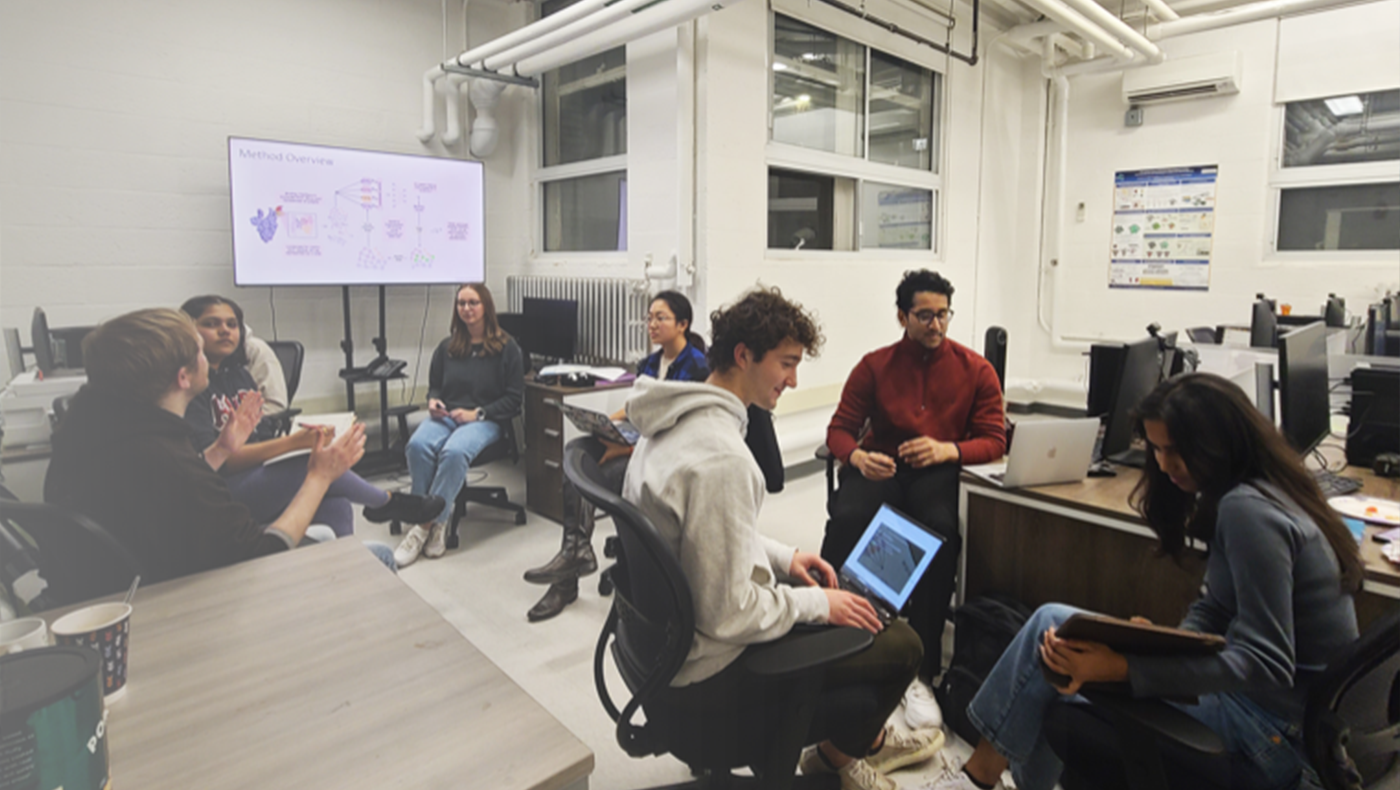Chemistry and Chemical Engineering Assistant Professor Srirupa Chakraborty has secured a substantial $1.99 million grant from the National Institutes of Health (NIH) for a breakthrough project aimed at transforming our understanding of mucin related diseases and paving the way for innovative biomaterials. This five-year grant, known as the NIH R35 MIRA is awarded to young faculty members who demonstrate exceptional promise, as part of NIH’s Next Generation Researchers Initiative.Mucins, which are densely glycosylated proteins, are central players in numerous biological processes, disease conditions, and potential therapies. These “sugar-coated molecular machines” are notoriously difficult to study due to their intricate structural dynamics. Understanding mucins’ role in diseases such as cystic fibrosis, mucosal inflammation, lung and GI infection, and mucin-mediated cancers has been a challenging task.Professor Chakraborty’s research seeks to revolutionize the field. Harnessing the high performance computing capabilities at Northeastern, her team is pioneering innovative computational tools to model densely glycosylated systems. These tools are set to provide robust alternatives to costly and resource-intensive experimental studies, unlocking a world of new possibilities.
 Professor Chakraborty and her team aim to enhance existing glycan modeling tools and develop new in silico techniques to understand the intricate structural dynamics of glycoproteins, particularly mucins. Using their cutting-edge computational tools, the researchers will build interconnected mucin glycoprotein gel systems that mimic the natural glycosylation patterns. This will offer profound insights into the physical properties of mucins and how they function. The research project will employ a range of approaches, including atomistic modeling, coarse-grained methods, and data-driven machine learning to study mucin networks at different scales.Inspired by mucosal gels, Professor Chakraborty and her team will use their computational tools to design novel mucin-like nanomaterials constructed from glycan-peptide heteropolymer networks. These materials hold the promise of being customized for various biomedical applications. The research aims to optimize a machine learning-driven method for arranging glycans in polymers, much like building with molecular “LEGO” blocks, offering enhanced control over material properties.This research not only promises to deepen our understanding of mucins and their vital role in health and disease but also opens the door to a wide range of innovative, mucin-inspired biomaterials with potential applications in various fields of biomedicine. The NIH’s generous grant acknowledges Professor Srirupa Chakraborty’s exceptional promise as an Early-Stage Investigator and represents a significant step forward in promoting the growth, stability, and diversity of the biomedical research workforce.This transformative research has the potential to revolutionize disease understanding and pave the way for cutting-edge biomaterials, ushering in a new era of possibilities in the field of biomedicine. Stay tuned for more updates on this exciting scientific journey!
Professor Chakraborty and her team aim to enhance existing glycan modeling tools and develop new in silico techniques to understand the intricate structural dynamics of glycoproteins, particularly mucins. Using their cutting-edge computational tools, the researchers will build interconnected mucin glycoprotein gel systems that mimic the natural glycosylation patterns. This will offer profound insights into the physical properties of mucins and how they function. The research project will employ a range of approaches, including atomistic modeling, coarse-grained methods, and data-driven machine learning to study mucin networks at different scales.Inspired by mucosal gels, Professor Chakraborty and her team will use their computational tools to design novel mucin-like nanomaterials constructed from glycan-peptide heteropolymer networks. These materials hold the promise of being customized for various biomedical applications. The research aims to optimize a machine learning-driven method for arranging glycans in polymers, much like building with molecular “LEGO” blocks, offering enhanced control over material properties.This research not only promises to deepen our understanding of mucins and their vital role in health and disease but also opens the door to a wide range of innovative, mucin-inspired biomaterials with potential applications in various fields of biomedicine. The NIH’s generous grant acknowledges Professor Srirupa Chakraborty’s exceptional promise as an Early-Stage Investigator and represents a significant step forward in promoting the growth, stability, and diversity of the biomedical research workforce.This transformative research has the potential to revolutionize disease understanding and pave the way for cutting-edge biomaterials, ushering in a new era of possibilities in the field of biomedicine. Stay tuned for more updates on this exciting scientific journey!


